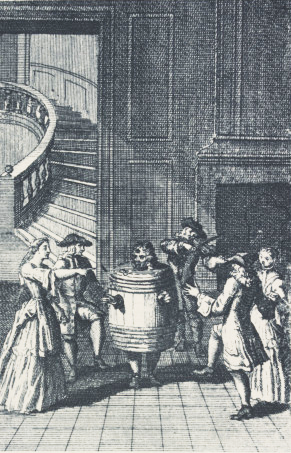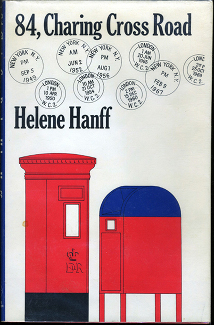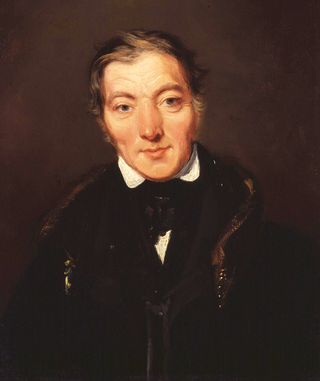Related Research Articles

Earl of Cork is a title in the Peerage of Ireland, held in conjunction with the Earldom of Orrery since 1753. It was created in 1620 for Richard Boyle, 1st Baron Boyle. He had already been created Lord Boyle, Baron of Youghal, in the County of Cork, in 1616, and was made Viscount of Dungarvan, in the County of Waterford, at the same time he was given the earldom. These titles are also in the Peerage of Ireland.

"Restoration comedy" is English comedy written and performed in the Restoration period of 1660–1710. Comedy of manners is used as a synonym for this. After public stage performances were banned for 18 years by the Puritan regime, reopening of the theatres in 1660 marked a renaissance of English drama. Sexually explicit language was encouraged by King Charles II (1660–1685) personally and by the rakish style of his court. Historian George Norman Clark argues:
The best-known fact about the Restoration drama is that it is immoral. The dramatists did not criticize the accepted morality about gambling, drink, love, and pleasure generally, or try, like the dramatists of our own time, to work out their own view of character and conduct. What they did was, according to their respective inclinations, to mock at all restraints. Some were gross, others delicately improper.... The dramatists did not merely say anything they liked: they also intended to glory in it and to shock those who did not like it.

Izaak Walton was an English writer. Best known as the author of The Compleat Angler, he also wrote a number of short biographies including one of his friend John Donne. They have been collected under the title of Walton's Lives.
This article contains information about the literary events and publications of 1690.
This article contains information about the literary events and publications of 1675.
This article contains information about the literary events and publications of 1669.
This article contains information about the literary events and publications of 1668.
This article contains information about the literary events and publications of 1667.
This article presents lists of the literary events and publications in 1664.
This article presents lists of the literary events and publications in 1661.
This article contains information about the literary events and publications of 1660.
This article contains information about the literary events and publications of 1655.

84, Charing Cross Road is a 1970 book by Helene Hanff, later made into a stage play, television play, and film, about the twenty-year correspondence between the author and Frank Doel, chief buyer of Marks & Co antiquarian booksellers, located at the eponymous address in London, England.

Restoration literature is the English literature written during the historical period commonly referred to as the English Restoration (1660–1689), which corresponds to the last years of Stuart reign in England, Scotland, Wales, and Ireland. In general, the term is used to denote roughly homogenous styles of literature that centre on a celebration of or reaction to the restored court of Charles II. It is a literature that includes extremes, for it encompasses both Paradise Lost and the Earl of Rochester's Sodom, the high-spirited sexual comedy of The Country Wife and the moral wisdom of The Pilgrim's Progress. It saw Locke's Treatises of Government, the founding of the Royal Society, the experiments and holy meditations of Robert Boyle, the hysterical attacks on theatres from Jeremy Collier, and the pioneering of literary criticism from John Dryden and John Dennis. The period witnessed news becoming a commodity, the essay developing into a periodical art form, and the beginnings of textual criticism.

The Compleat Angler is a book by Izaak Walton, first published in 1653 by Richard Marriot in London. Walton continued to add to it for a quarter of a century. It is a celebration of the art and spirit of fishing in prose and verse.
Events from the year 1676 in England.
John Marriot and his son Richard Marriot were prominent London publishers and booksellers in the seventeenth century. For a portion of their careers, the 1645–57 period, they were partners in a family business.

William Henry Brooke (1772–1860) was a British artist and illustrator.

Henry Harris was an English stage actor and theatre manager. Initially a painter he was a founder member of the new Duke's Company in 1660 following the Restoration which established itself at the old Salisbury Court Theatre before moving to the new Lincoln's Inn Fields Theatre shortly afterwards. Due to his background Harris may have been a set designer and painter during his early years with the company. However, by 1661 he was acting, and his first recorded role was in William Davenant's The Siege of Rhodes that summer. He quickly established himself as the second actor in the troupe after Thomas Betterton.
References
- 1 2 Everett, Jason M., ed. (2006). "1676". The People's Chronology. Gale Group, Inc.
- ↑ Knighton, C. S. (2004). "Pepys, Samuel (1633–1703)". Oxford Dictionary of National Biography (Online ed.). Oxford University Press. doi:10.1093/ref:odnb/21906 . Retrieved 2013-07-15.(subscription or UK public library membership required)
- ↑ M. B. W. Tent (17 October 2011). Gottfried Wilhelm Leibniz: The Polymath Who Brought Us Calculus. CRC Press. p. 111. ISBN 978-1-4398-9224-4.
- ↑ Geoffroy Atkinson, The Extraordinary Voyage in French Literature Before 1700 , 1920 p. 36.
- ↑ "Anne Clifford". English Heritage. Retrieved 26 March 2019.